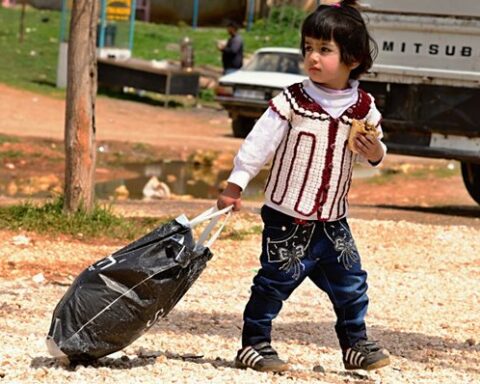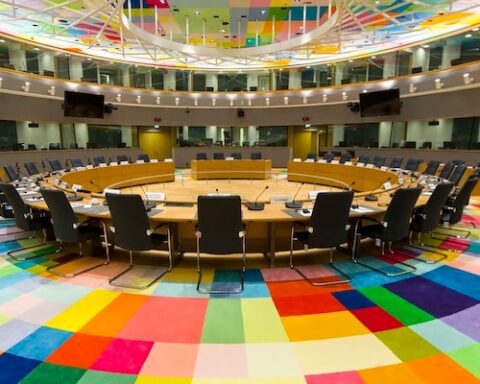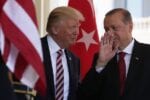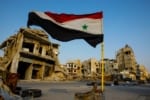Russia and Syria deny the alleged chemical attack against the rebel-held Damascus suburb of Douma and question whether the use of chemical weapons against a defeated enemy makes any sense.
A Syrian rebel group has accused the Bashar al Assad led government of having deployed chemical weapons against the rebel-held Damascus suburb of Douma on April 7th. According to unverified reports, at least 70 people have died due to the attack with hundreds more wounded. Most of the casualties are described as women and children.
According to reports from rebels affiliated with the Jaish al-Islam militia group, Syrian helicopters dropped barrel bombs on the town. The Syrian government has used this technique on a number of occasions. What differed this time, however, are allegations that the barrel bombs were not of the standard High Explosive (HE) configuration, but instead contained either sarin or chlorine gas, or possibly a mixture of the two. The immediate effect was reported as residents suffocating and violently convulsing.
![Image A video image provided by the Syrian Civil Defense after a suspected chemical attack in the Damascus suburb of Douma on April 8, 2018 [Image: Syrian Civil Defense White Helmets, via AP]](https://limacharlienews.com/wp-content/uploads/2018/04/Syria-chemical-attack-White-Helmets.jpg)
Some observers have expressed skepticism about the attack, as well as its source. Swedish UN inspector Swede Ake Sellström stated, “Until proven I remain skeptical.” U.S. State Department spokesperson Heather Nauert said in a statement, “These reports are frightening if confirmed, and require an immediate response from the international community.”
Syrian state controlled media has, predictably, denied complicity, blaming rebel groups that are on the verge of defeat for spreading false information and even staging the attack and its victims. State owned news agency SANA cited a government source as saying, “Jaish al-Islam terrorists are in a state of collapse and their media outlets are [making] chemical attack fabrications in an exposed and failed attempt to obstruct advances by the Syrian Arab Army.” Syria has claimed that the videos were fabricated to garner international support.
Russia’s Defense Ministry also refuted reports that Syria used chemical weapons accusing non-government organizations of fake news and the West of attempting to disrupt operations to evacuate Jaish al-Islam militants from Douma.
In a conflict as devastating as the Syrian Civil War, casualties are certainly easy to find. Whether such casualties may be used to perpetuate a false attack remains to be seen. The fact that some chemical agents, such as chlorine gas, can easily be produced, has also been used to support speculation that the chemical attack, if confirmed, could have been initiated by competing militant factions, or even the regionally reigning militant faction, Jaish al-Islam. Without a United Nations monitoring team, or professionals conducting a proper chemical compound investigation, the situation remains difficult to fully and accurately assess.
With virtually no readily available evidence, except for what conceivably could be staged photographs and eyewitness reports, Syria and Russia have maintained that any use of chemical agents against a defeated enemy would make little sense.
If the attack is verifiably proven to be of Syrian origin, it is without doubt yet another horrible act by a government that has put little value on the blood of its own people.
[Footage said to show medical workers in Douma, Syria, treating victims of the attack (Reuters)]
Douma first fell to anti-government militia groups at the end of January, 2012 after the then-incarnation of the Free Syrian Army (FSA) gained control over large portions of the area. The Syrian Arab Army (SAA) responded forcefully, and reclaimed the majority of the Damascus suburbs by summer. However, by the end of 2012 the FSA had exhausted the local SAA forces and Douma came under their complete control. By 2013 FSA began to fragment, and elements of it morphed into more extremist groups, such as the al Qaeda affiliated al Nusra group.
The fragmentation of FSA rendered it a static and largely incapable fighting group. Attempts were made, using resources provided by Turkey and the Kingdom of Saudi Arabia, to recreate the FSA into an umbrella organization of a nuanced array of militia groups. Ultimately, this would fail. By mid 2013, the Salafist-Jihadist militia group al Jabhat al Islamiyah (the Islamic Front) had begun to perforate the remaining FSA lines. The area of Eastern Ghouta and Douma have been in constant flux between various militia groups, and the Syrian government’s control since.
By late 2017, the main controlling factor in both Eastern Ghouta and Douma was the Jaish al-Islam (JI), which had previously been part of the Islamic Front and a former ally of al Nusra. The group’s stated goal is not just to replace President Assad’s regime, but to do so with a Syrian society based on Islamic Sharia law. By January, the group is believed to be able to field well over 10,000 fighters, with some estimates stating up towards 15,000. “They are presumed to be the largest rebel group with several thousands of fighters, possibly over 10,000 fighters,” according to Elizabeth Tsurkov, an Research Fellow at the Forum for Regional Thinking.
With virtually no readily available evidence, except for what conceivably could be staged photographs and eyewitness reports, Syria and Russia have maintained that any use of chemical agents against a defeated enemy would make little sense.
By early 2018, the Syrian government began focusing their attention on JI positions across the suburbs, primarily using air-to-ground capabilities. Syrian SAA ground forces have recently been quite successful in advancing towards the JI held areas. With JI being headquartered out of Douma, the Syrian Air Force began a series of near indiscriminate attacks against the town, which might have culminated in a chemical agent attack on April 7th.
This means that the attack would have happened mere hours before a Russian government brokered deal to have Syrian government provided buses evacuate hostages, militia and civilians alike from the besieged enclave. Despite the alleged attack, the buses arrived just before dawn on April 8th to begin the evacuation. The buses will be carrying opposition fighters along with their families out of the area, towards opposition-held areas in northern Syria. Hostages and those that wish to go towards the Damascus-controlled areas will be shuttled accordingly. The transference of everyone, before the advancing SAA forces arrive to town, is expected to take at least another four days.
President Assad has denied his government used chemical weapons, and the Russian Foreign Minister, Sergei Lavrov, stated there is no evidence of a chemical weapons attack on Douma. The international community, chiefly Western US allies, has strongly objected to the attack with both the US and France stating that a “joint, strong response” is being considered. The UN Security Council convened an emergency meeting Monday to discuss the allegations.
The attack bears a striking resemblance to the April 4, 2017, chemical attack on the Syrian town of Khan Shaikhun. According to reports, that attack saw 74 people killed and injured more than 557, most of which were described as civilians. The US responded by launching 59 Tomahawk cruise missiles against the Shayrat Air Base, where the attack was alleged to have been initiated. Important to note is that on February 2, 2018, U.S. Secretary of Defense James Mattis stated that while the US response to the Khan Shaikhun attack was justifiable, and that Syria would be “ill advised to go back to violating the chemical convention,” the US had no actual evidence that the attack had involved chemical agents.
Russia has blocked numerous American-sponsored UN Security Council resolutions to investigate the attack. Russia is also the premier supplier of arms to Syria, and is responsible for supervising the destruction of Syria’s chemical weapons stock.
As the perception of the attack is strikingly similar to that of the Khan Shaikhun chemical attack, it is not unlikely that the US response will be similar to the Douma attack. President Trump has understandably condemned the attack, describing it as “heinous” and vowing to make a public response “within 48 hours” against those responsible. This despite a current lack of actual independent verification of the attack or its nature.
President Trump tweeted his condemnation on Sunday, posting that there would be a “big price to pay” for using chemical weapons against civilians. Trump also levied attacks against Iran, Russia and Russian President Vladimir Putin stating, “President Putin, Russia and Iran are responsible for backing Animal Assad.”
Many dead, including women and children, in mindless CHEMICAL attack in Syria. Area of atrocity is in lockdown and encircled by Syrian Army, making it completely inaccessible to outside world. President Putin, Russia and Iran are responsible for backing Animal Assad. Big price…
— Donald J. Trump (@realDonaldTrump) April 8, 2018
….to pay. Open area immediately for medical help and verification. Another humanitarian disaster for no reason whatsoever. SICK!
— Donald J. Trump (@realDonaldTrump) April 8, 2018
A few hours before President Trump’s declaration, reports emerged that two unidentified jet fighters had attacked the Syrian Air Force base Tiyas, reportedly killing several people. The US has denied involvement, and Russian officials have placed blame on the Israeli Air Force. The two fighters are believed to have fired 8 missiles against the airbase and originated from Lebanese airspace. No doubt, if Israel did carry out the attack, justification would be humanitarian – the disabling of an airbase that carried out a chemical attack – rather than an opportunistic strike against a long standing enemy.
However President Trump ultimately decides to respond to this latest incident, there is little doubt it will be both very public, and very expensive.
John Sjoholm, Lima Charlie News
[Edited by Anthony A. LoPresti]
John Sjoholm is Lima Charlie’s Middle East Bureau Chief, Managing Editor, and founder of the consulting firm Erudite Group. A seasoned expert on Middle East and North Africa matters, he has a background in security contracting and has served as a geopolitical advisor to regional leaders. He was educated in religion and languages in Sana’a, Yemen, and Cairo, Egypt, and has lived in the region since 2005, contributing to numerous Western-supported stabilisation projects. He currently resides in Jordan. Follow John on Twitter @JohnSjoholmLC
Lima Charlie World provides global news, featuring insight & analysis by military veterans, intelligence professionals and foreign policy experts Worldwide.
For up-to-date news, please follow us on twitter at @LimaCharlieNews
In case you missed it:

![Image Syria chemical weapons attack is not without skeptics [Lima Charlie News][Image: White Helmets]](https://limacharlienews.com/wp-content/uploads/2018/04/Syria-chemical-weapons-attack-is-not-without-skeptics-Lima-Charlie-News-e1523325777112.jpg)
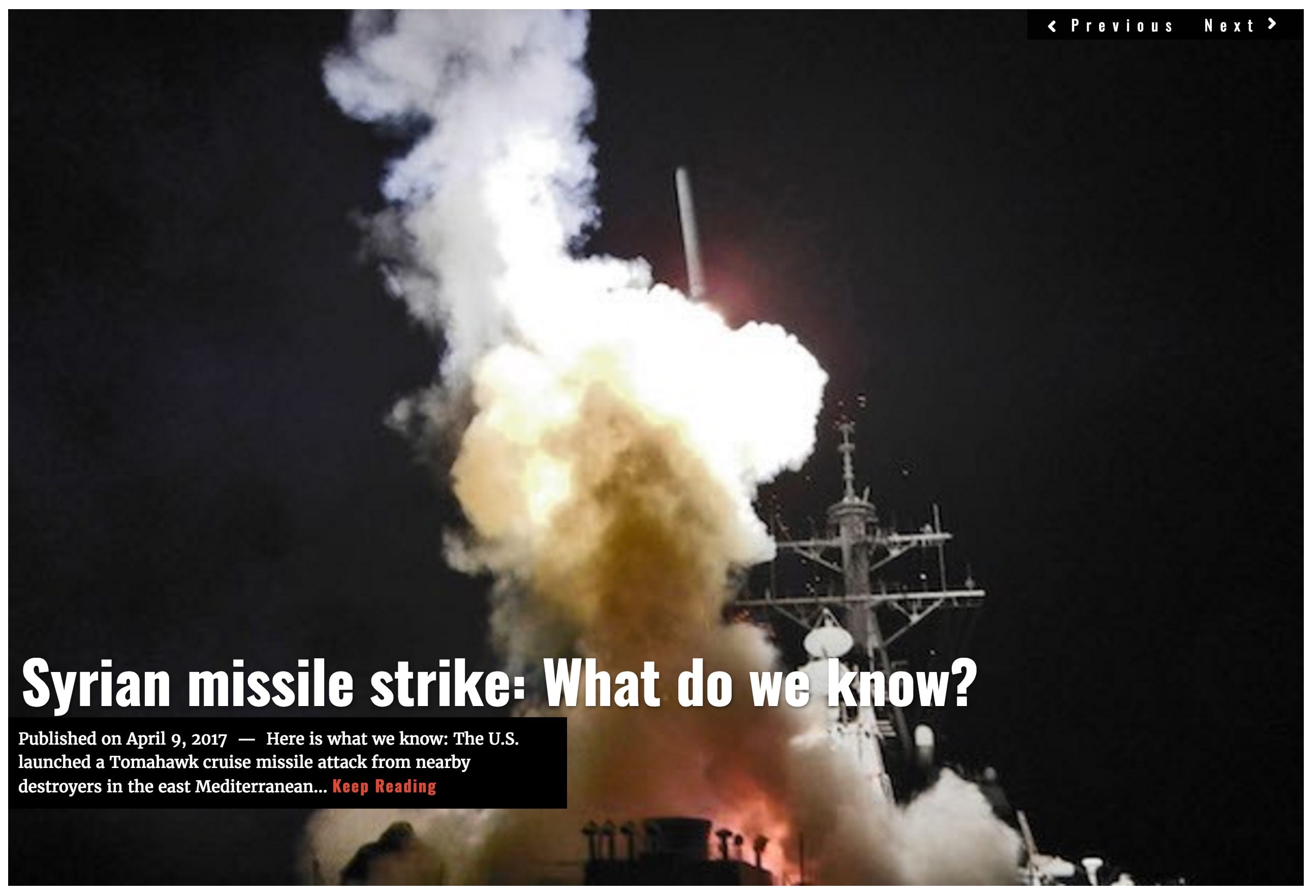
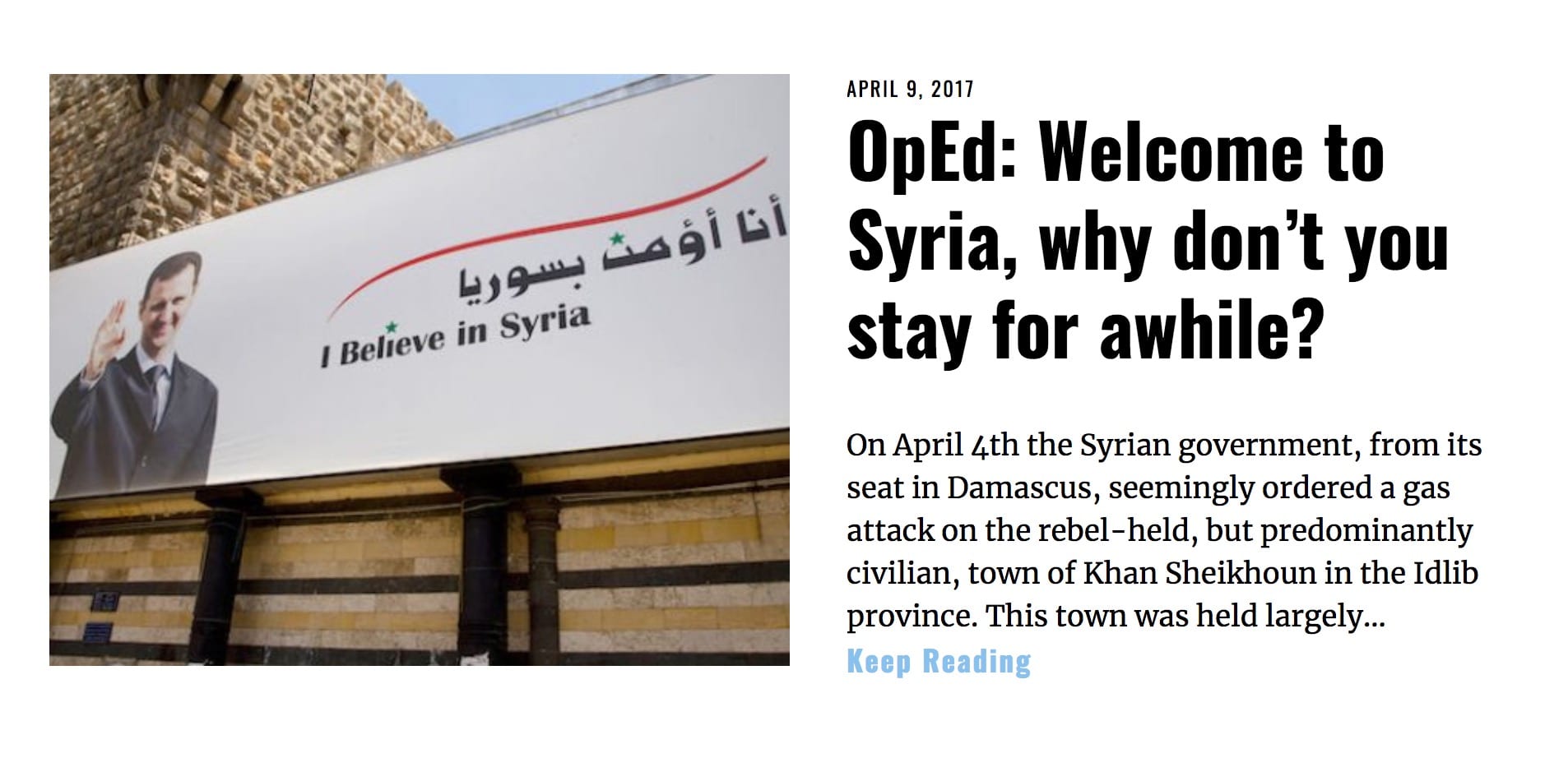
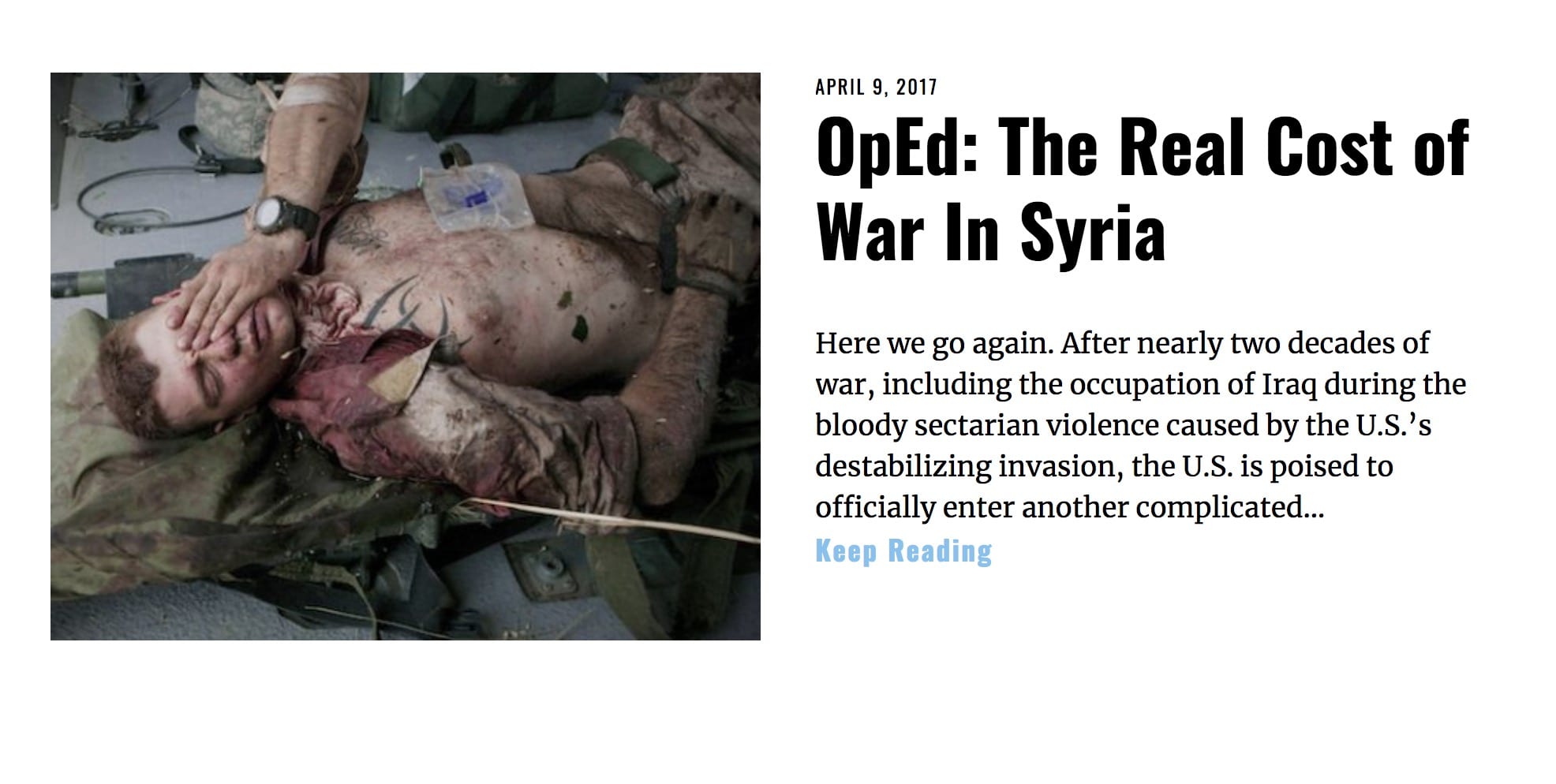


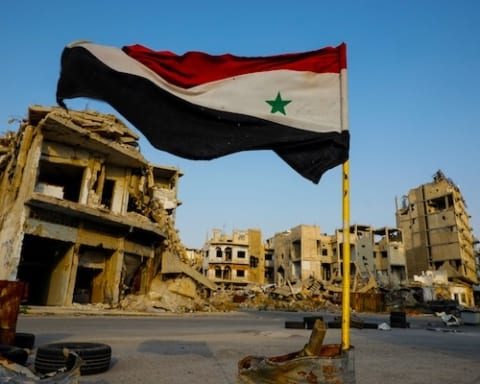
![Syria’s oil, gas and water - the Immiscible Solution to the War in Syria [Lima Charlie News][Photo: ANDREE KAISER / MCT]](https://limacharlienews.com/wp-content/uploads/2019/05/Syria’s-oil-gas-and-water-480x384.png)


